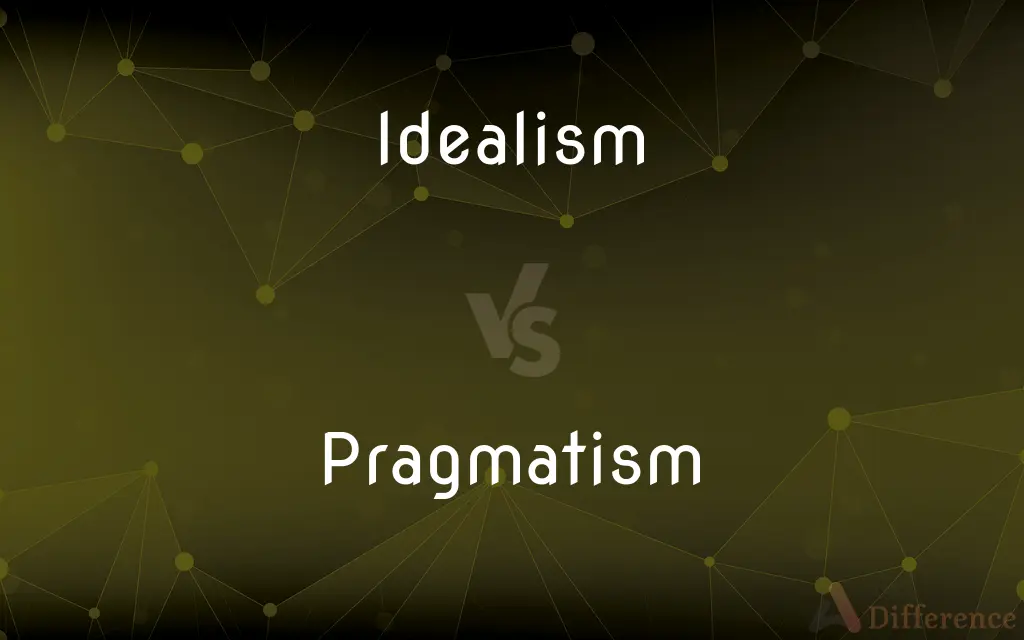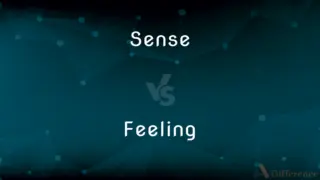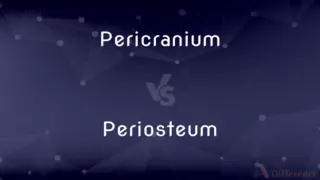Idealism vs. Pragmatism — What's the Difference?
Edited by Tayyaba Rehman — By Fiza Rafique — Updated on October 30, 2023
Idealism focuses on pursuing ideals and moral principles, often abstractly; pragmatism emphasizes practicality and adapting to real-world circumstances.

Difference Between Idealism and Pragmatism
Table of Contents
ADVERTISEMENT
Key Differences
Idealism centers on high principles and aspirations, often prioritizing moral or ethical values. Pragmatism, contrastingly, stresses the importance of practical outcomes and realistic solutions.
In idealism, abstract concepts and ideals often guide decisions, sometimes overlooking practical constraints. Pragmatism takes a more hands-on approach, adapting to existing conditions and limitations.
Idealism can be visionary, aspiring to a perfect or utopian vision. Pragmatism is grounded, focusing on what works and is achievable in the real world.
In philosophy, idealism posits that reality is mentally constructed or immaterial. Pragmatism, as a philosophical movement, argues that the truth of beliefs is determined by their practical consequences.
Idealists may be seen as dreamers, striving for what ought to be. Pragmatists are often viewed as realists, dealing with what is.
ADVERTISEMENT
Comparison Chart
Focus
Ideals, moral principles
Practical outcomes, adaptability
Approach to Reality
Abstract, aspirational
Realistic, hands-on
Philosophical Basis
Reality is mentally constructed or immaterial
Truth of beliefs based on practical outcomes
Decision Making
Guided by ideals, sometimes impractical
Guided by practicality, what works
Perception
Visionary, dreamer-like
Grounded, realist-like
Compare with Definitions
Idealism
Pursuing high ideals and moral values.
His idealism led him to advocate for world peace.
Pragmatism
Adaptability to real-world conditions.
His pragmatism allowed him to adjust quickly to changes.
Idealism
A theory that reality is mentally constructed.
In idealism, the mind shapes our understanding of the world.
Pragmatism
Realist, not influenced by ideals or theories.
As a pragmatist, she valued what worked over what was ideal.
Idealism
Philosophical belief in inherent goodness.
Her idealism about human nature was unwavering.
Pragmatism
Practical approach to problems and affairs.
His pragmatism helped navigate the company through the crisis.
Idealism
Unrealistic pursuit of perfection.
His idealism often blinded him to practical solutions.
Pragmatism
Pragmatism is a philosophical tradition that considers words and thought as tools and instruments for prediction, problem solving, and action, and rejects the idea that the function of thought is to describe, represent, or mirror reality. Pragmatists contend that most philosophical topics—such as the nature of knowledge, language, concepts, meaning, belief, and science—are all best viewed in terms of their practical uses and successes.
Idealism
In philosophy, idealism is a diverse group of metaphysical views which all assert that "reality" is in some way indistinguishable or inseparable from human perception and/or understanding, that it is in some sense mentally constructed, or that it is otherwise closely connected to ideas. In contemporary scholarship, traditional idealist views are generally divided into two groups.
Pragmatism
A pragmatic attitude or policy
Ideology had been tempered with pragmatism
Idealism
The unrealistic belief in or pursuit of perfection
The idealism of youth
Pragmatism
An approach that evaluates theories or beliefs in terms of the success of their practical application.
Idealism
Any of various systems of thought in which the objects of knowledge are held to be in some way dependent on the activity of mind.
Pragmatism
(Philosophy) A movement consisting of varying but associated theories, originally developed by Charles S. Peirce and William James and distinguished by the doctrine that the meaning or truth value of an idea or a proposition lies in its observable practical consequences.
Idealism
The act or practice of envisioning things in an ideal and often impractical form.
Pragmatism
A practical, matter-of-fact way of approaching or assessing situations or of solving problems.
Idealism
Pursuit of one's ideals, often without regard to practical ends.
Pragmatism
The pursuit of practicality over aesthetic qualities; a concentration on facts rather than emotions or ideals.
Idealism
Idealized treatment of a subject in literature or art.
Pragmatism
(politics) The theory that political problems should be met with practical solutions rather than ideological ones.
Idealism
(Philosophy) The theory that the object of external perception, in itself or as perceived, consists of ideas.
Pragmatism
(philosophy) The idea that beliefs are identified with the actions of a believer, and the truth of beliefs with success of those actions in securing a believer's goals; the doctrine that ideas must be looked at in terms of their practical effects and consequences.
Idealism
The property of a person of having high ideals that are usually unrealizable or at odds with practical life.
Pragmatism
The habit of interfering in other people's affairs; meddlesomeness.
Idealism
The practice or habit of giving or attributing ideal form or character to things; treatment of things in art or literature according to ideal standards or patterns;—opposed to realism.
Pragmatism
The quality or state of being pragmatic; in literature, the pragmatic, or philosophical, method.
The narration of this apparently trifling circumstance belongs to the pragmatism of the history.
Idealism
(philosophy) An approach to philosophical enquiry, which asserts that direct and immediate knowledge can only be had of ideas or mental pictures.
Pragmatism
(philosophy) the doctrine that practical consequences are the criteria of knowledge and meaning and value
Idealism
The quality or state of being ideal.
Pragmatism
The attribute of accepting the facts of life and favoring practicality and literal truth
Idealism
Conception of the ideal; imagery.
Pragmatism
Philosophy where truth is determined by practical consequences.
In pragmatism, a belief's usefulness is central to its truth.
Idealism
The system or theory that denies the existence of material bodies, and teaches that we have no rational grounds to believe in the reality of anything but ideas and their relations.
Pragmatism
Focusing on practical outcomes and efficiency.
Her pragmatism was evident in her straightforward solutions.
Idealism
The practice or habit of giving or attributing ideal form or character to things; treatment of things in art or literature according to ideal standards or patterns; - opposed to realism.
Idealism
A belief in the feasibility of the implementation of ideal principles and noble goals, and the practice or habit of pursuing such goals; - opposed to realism and cynicism.
Idealism
(philosophy) the philosophical theory that ideas are the only reality
Idealism
Impracticality by virtue of thinking of things in their ideal form rather than as they really are
Idealism
Elevated ideals or conduct; the quality of believing that ideals should be pursued
Idealism
Aspiration towards a perfect state.
The revolution was fueled by a sense of idealism.
Common Curiosities
Is idealism always unrealistic?
Not always, but it can prioritize ideals over practicality.
Is pragmatism a philosophy?
Yes, it's a philosophical tradition focused on practical consequences.
Can pragmatism include moral considerations?
Yes, but it focuses on practical moral outcomes.
Can a pragmatist be an idealist?
Yes, one can balance idealistic goals with pragmatic methods.
Is idealism valuable in politics?
Yes, it can inspire and set high ethical standards.
Are idealists always optimists?
Often, but idealism isn't synonymous with optimism.
Does idealism reject reality?
Not reject, but it can emphasize ideals over current reality.
Do idealists contribute to social change?
Yes, idealism often drives social and ethical progress.
Can pragmatism lead to innovation?
Yes, through practical problem-solving and adaptability.
Is pragmatism always the best approach?
Not always; it depends on the context and goals.
Does pragmatism devalue dreams and aspirations?
Not devalue, but it places them within a practical framework.
Do idealists ignore practical constraints?
Sometimes, as they can prioritize ideals over pragmatics.
Are all idealists visionary?
Many are, but idealism varies in form and intensity.
Can pragmatism be morally flexible?
It can be, as it often prioritizes outcomes over principles.
Can pragmatism be short-sighted?
It can be, if it focuses too narrowly on immediate practicality.
Share Your Discovery

Previous Comparison
Sense vs. Feeling
Next Comparison
Pericranium vs. PeriosteumAuthor Spotlight
Written by
Fiza RafiqueFiza Rafique is a skilled content writer at AskDifference.com, where she meticulously refines and enhances written pieces. Drawing from her vast editorial expertise, Fiza ensures clarity, accuracy, and precision in every article. Passionate about language, she continually seeks to elevate the quality of content for readers worldwide.
Edited by
Tayyaba RehmanTayyaba Rehman is a distinguished writer, currently serving as a primary contributor to askdifference.com. As a researcher in semantics and etymology, Tayyaba's passion for the complexity of languages and their distinctions has found a perfect home on the platform. Tayyaba delves into the intricacies of language, distinguishing between commonly confused words and phrases, thereby providing clarity for readers worldwide.














































